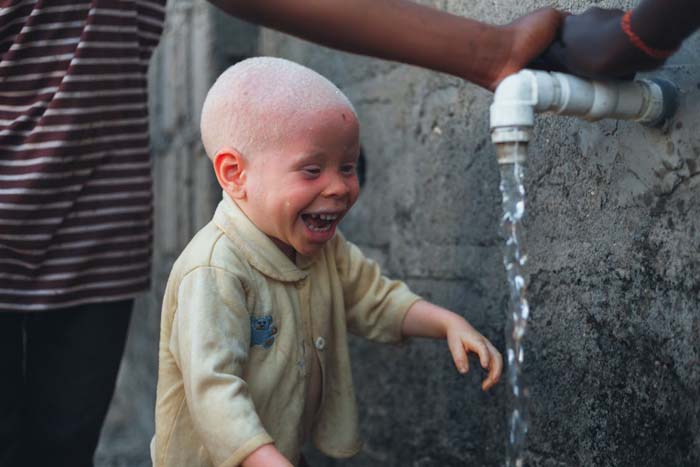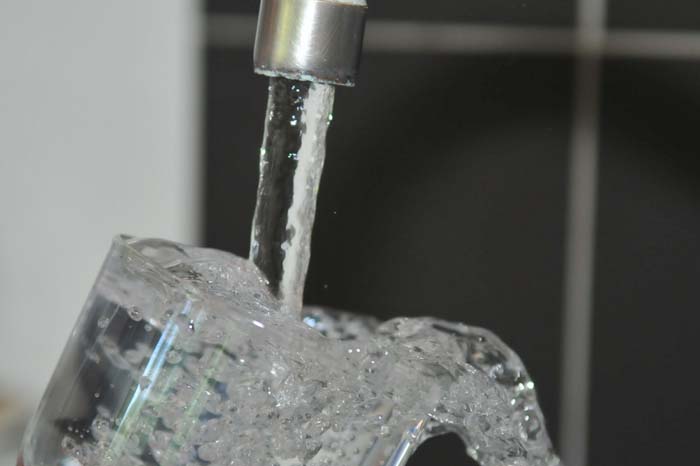
Getting clean, safe water is not a luxury but a necessity. Still, many homes have doubts about the purity of their water supply. You can get filtered water from every tap in your house with a whole house water filtration system. It makes it the ideal choice if you’re looking to upgrade tap water quality.
But the high price tag makes some people think twice before buying these devices. To assist you in deciding if it is worth it, we will explain why investing in a whole house water filtration system is important.
 What is a whole house water filtration system?
What is a whole house water filtration system?
Installing it at your home’s main water line allows you to treat water before it goes through taps, appliances, and pipes. Homeowners can enjoy filtered tap water for various uses, such as bathing, cleaning, and drinking when they take this step.
It is more expensive than a countertop, shower, or under-sink filter. Nevertheless, these smaller filters only connect to a single point of use or tap. So, if you need water filtration from more than one faucet, they’ll have to purchase and maintain multiple systems.
Advantages of a whole house water filtration system
- Improves water quality
You may use the purified water from a water filtration system for everything from doing laundry to taking showers to cooking and cleaning, among many other uses.
- Water tastes better
The water from a whole house water filtration system is not only of higher quality, but it also tastes better.
- Eliminates bad tastes and smells
When you drink water from the faucet, has it tasted or smelled like chlorine or fish? Impurities are the cause of water that smells or tastes foul. There may be microorganisms in the water that cause unpleasant tastes or smells. Disgusting odors, tastes, and stains are all things a water filtering system can help you eliminate.
- Filters potentially hazardous pollutants
The tap water in many houses is unfit for human consumption due to contamination and pollution. Fortunately, a whole house water filtration system can remove numerous harmful pollutants, such as pesticides, chlorine, and other chemicals and toxins, from the water supply.
- It keeps your appliances and plumbing running for a long time
Chemicals, chlorine, sediment, and heavy metals thrive in untreated water. They also accumulate in pipes and eventually cause harm. But with a water filtering system, you won’t have to worry about those nasty contaminants. Your appliances and pipes will have a substantially longer lifespan as a result.
- Environmentally friendly
If you install a whole house filtration system, you only need a few plastic water bottles. This helps the planet and, more importantly, your wallet in the long term.
- Keep good minerals after removing heavy metals
Did you know that while removing harmful metals from water, a filtration system preserves the beneficial minerals? It only removes the things you don’t want—not everything!
- Decreases corrosion
If you ignore pipe corrosion and rust, it could lead to health issues. Beyond that, it has the potential to discolor many surfaces, including the area surrounding sinks, fixtures, and appliances. Is there any discoloration in your water right now? The pipes may be corroded if this happens. Installing a whole house water filtering system eliminates worrying about corrosion.
The cost of whole house water filtration system installation
There’s a wide range in price for a whole house water filtration system due to the different technologies utilized. Some examples of frequent types are:
- UV Sterilization Systems:
Though more dependable point-of-entry UV water purifiers can cost $550+, they start at $200 and purify water throughout the house.
- Reverse Osmosis Systems:
They begin at $150 to $15,000 and are famously efficient filters.
You can buy a point-of-use ultraviolet water filtration system for approximately $70 to $200. This system helps filter water for a single faucet.
- Activated Carbon Filters:
To remove impurities, these systems employ carbon adsorption. The price of an automatic whole house filtration system starts at $10 to $50 and goes up from there based on the features and capacity.
- Water Softeners:
The water softener type, capacity, and installation site are three of the most important variables in determining the final price of your system. A water softening system can cost around $200 to $11,000, with the average household spending around $1,500.
Installation Complexity
To make sure everything is set up correctly and in accordance with local rules, it is highly suggested to have a professional install a whole house water filtration system. Included in the factors that can impact installation costs are:
- Electrical Work:
The installation cost can increase if the equipment requires electrical connections to function.
- Plumbing Modifications:
A rise in price tag could be in store if the filtering system necessitates plumbing system modifications.
Can I install a water filtration system myself?
Setting up a water filtration system takes more than just following the directions. You should hire a professional to ensure everything is per local standards and grasp the complexities of your home’s plumbing. You don’t want to deal with incorrect filtration and water leaks. Do-it-yourself water filter installations are not without their risks. In the short term, you could save money, but what about the long-term consequences? Avoid them at all costs. Let me explain:
- Efficiency of the System
Poor water quality can result from a filter system that isn’t properly installed.
- Issues with Compliance
Warranty and insurance problems may arise due to improper installation.
The Benefits of Hiring an Expert
If you want sparkling water, having a professional install it is your best bet. These specialists are on top of their game when optimizing your system’s performance and adhering to safety rules.
Advantages over time
The time and effort saved in the long term are directly proportional to the quality and longevity of the system’s performance after proper installation.
Reassurance
You can rest easy knowing your system is fully functional when you let the experts handle it.
How to know when my water filter needs replacement
- You hate the odor of your water
If you detect a metallic aftertaste in your water or any other unusual taste, it’s time to update your water filter. Water with a buildup of minerals like magnesium and calcium is known as hard water, and it’s the source of that distinct flavor. These minerals contribute to the buildup of scale in the filter, which gives your water an off flavor.
- Sound
Like an old water pump, a water filter about to die could make a laborious noise. You should consider replacing your water filter before it breaks down if you hear strained sounds coming from it.
- Slow filtration
If your house water filtration system used to work fast but is now taking an eternity, it’s probably becoming clogged and needs cleaning or replacement.
- Dirt or mold
You’ve noticed black mold or “floaty particles in the filtered water.” The fungal disease known as black mold can cause a wide range of negative effects on human health.
When installing your new filter, you must wash your hands thoroughly after handling your old filter. This will prevent the new filter from becoming contaminated with alkaline water.
 Smell
Smell
Improperly filtered water often takes on a strange and off-putting odor. When water has an unpleasant odor, it’s usually because of a clogged, unclean, or ineffective filter. This renders the water unfit for human consumption or other uses.
It may be necessary to fix, replace a component of, or replace your whole house filtration system entirely if it generates water with an unusual smell. If fixing or getting new parts does not work, you should get a new system.
How often should you change your whole house water filter?
You must replace your whole house water filtration system every 3 to 6 months. This keeps it in the best possible condition and ensures its dependability. For the sake of your appliances, your home’s plumbing, and your health, this helps to ensure that the water is free of toxins and impurities.
Conclusion
The type of system, the difficulty of installation, and the frequency of maintenance are a few of the variables that affect how much a whole house water filtration system will cost. For many homeowners, though, the environmental benefits, possible savings, and peace of mind from knowing their water is safe to drink throughout the house make these systems an excellent investment. To make the best choice, it’s important to do research, seek professional advice, and carefully examine your budget and specific needs.
